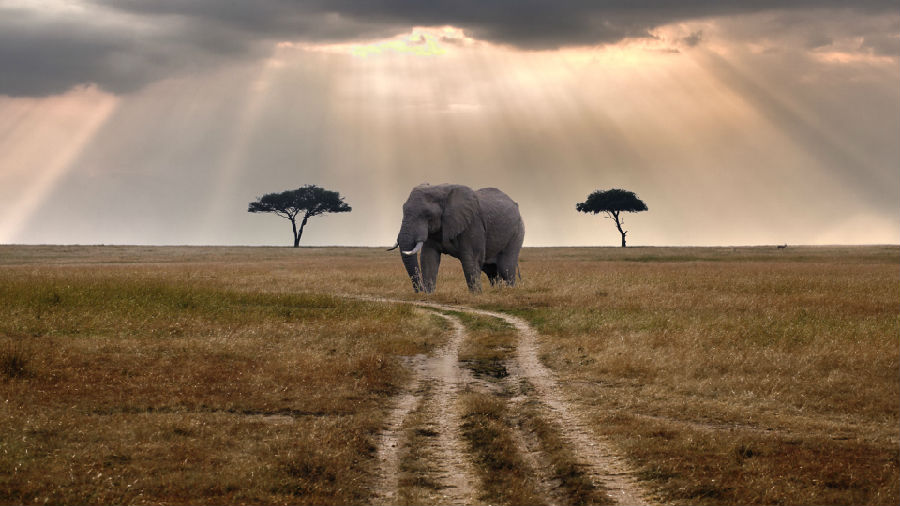前景回顧
In the selections you have just read, you have been seeing the outdoor world through the eyes of people
在你所閱讀的文章中,你通過他人的眼睛領(lǐng)略戶外世界,
who love it and can read its language. You have become acquainted with just a few of the thousands of pages of
他們喜歡戶外世界,并能夠讀懂它的語言,你已經(jīng)熟悉了數(shù)千頁紙張當(dāng)中的一小部分,
fascinating stories that have been written about the wild things which live on this earth with us human beings.
這些有趣的故事講述了與人類共生存的野外事物。
Think back over these stories and poems. Which was the most exciting?
回顧一下你看過的故事和詩歌,哪個故事最有趣?
Did that exciting story interest you most of all, or was there some other story that was more interesting to you?
那個最有趣的故事是不是最吸引人,或是有其它更吸引你的故事?

What serious fact did you learn about the wild life not only of our country but of the world?
你學(xué)到了哪些關(guān)于野外生物的知識,不僅僅是對于你的國家,更是對于整個世界?
Old Boculy knew his outdoor world probably better than you know arithmetic or spelling or geography,
老伯克利所了解的戶外世界要比你對算數(shù)或是拼寫或是地理要多,
and it is almost certain that he knew it better than you know the wild life that surrounds you.
肯定的是,他對你周圍野生動物的了解要比你多得多。
How many animals and how many birds can you name that live in your part of the country?
在你生活的地方,你能說出多少動物和鳥類的名字?
It would be interesting for each of you to make a separate list of the animals, birds, and flowers that may be found near your home.
如果能夠分別列出你家附近的動物,鳥類和花朵名稱那將多么有趣。
Then compare lists and see how many different kinds have been named by the class.
將這份名單和班上同學(xué)的名單相比較。
Have you thought of any ways in which you can help protect the wild life in your part of the country?
你有沒有想過保護(hù)你們國家野生動物的方法?
Have you tried to interest older people in protecting birds and wild flowers?
你有沒有嘗試過讓老人對保護(hù)鳥類和野生花朵感興趣?
If you have read an interesting book on preserving outdoor life,
如果你讀過有關(guān)保護(hù)野生動物的書籍,
your classmates would like to know the title. On page 449 is a list of books on outdoor life.
你的同學(xué)或許想知道這本書的名字,書的第449頁列出了戶外生活書籍的名單。
You will gain pleasure and knowledge from reading them.
你可以從中獲得知識和樂趣。


